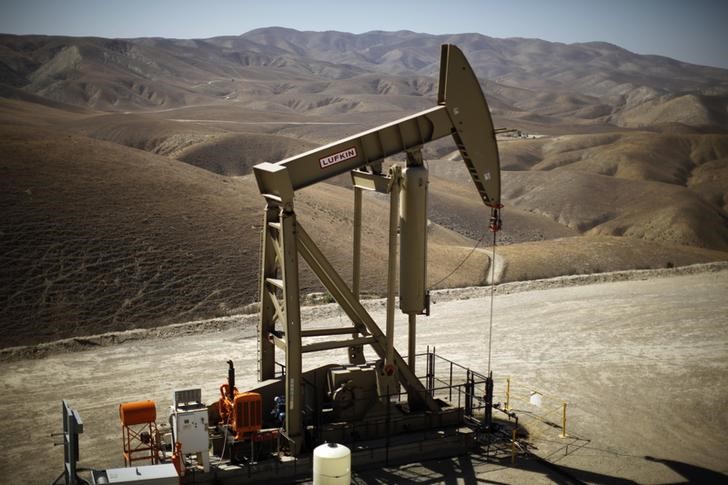Investing.com - Oil prices turned lower in North American trading on Monday, giving back strong overnight gains as traders focused on rising shale production in the U.S., while monitoring fresh geopolitical tension in the Middle East.
The U.S. West Texas Intermediate crude July contract shed 28 cents, or around 0.6%, to $47.38 a barrel by 6:55AM ET (1055GMT). It rose by more than 1.5% in overnight trade to a daily peak of $48.42.
Elsewhere, Brent oil for August delivery on the ICE Futures Exchange in London dipped 33 cents to $49.62 a barrel, pulling back from a session high of $50.74.
Oil prices jumped in overnight trade in response to news that Saudi Arabia, the United Arab Emirates, Bahrain and Egypt severed their ties with Qatar, accusing it of supporting terrorism, in an unprecedented breach between the most powerful members of the Gulf Cooperation Council.
The coordinated move dramatically escalates a dispute over Qatar's support of the Muslim Brotherhood, the world's oldest Islamist movement, and adds accusations that Doha even backs the agenda of regional arch-rival Iran.
Market participants are sensitive to Middle East tensions because they worry about supply disruptions from the region. However, the latest developments do not appear to have a direct impact on oil production and exports from the region.
Concerns that the ongoing rebound in U.S. shale production could derail efforts by other major producers to rebalance global oil supply and demand pressured crude prices.
Oil suffered its largest weekly loss in a month last week, dropping more than 4%, amid growing concern over rising shale production in the U.S.
Data from energy services company Baker Hughes showed on Friday that U.S. drillers last week added rigs for the 20th week in a row, the longest such streak on record, implying that further gains in domestic production are ahead.
The U.S. rig count rose by 11 to 733, extending a year-long drilling recovery to the highest level since April 2015.
The increase in U.S. drilling activity and shale production has mostly offset efforts by OPEC and other producers to cut output in a move to prop up the market.
Last month, OPEC and some non-OPEC producers extended a deal to cut 1.8 million barrels per day in supply until March 2018.
So far, the production-cut agreement has had little impact on global inventory levels due to rising supply from producers not participating in the accord, such as Libya and Nigeria, and a relentless increase in U.S. shale oil output.
Elsewhere on Nymex, gasoline futures for July inched down 1.1 cents, or about 0.7%, to $1.563 a gallon, while July heating oil slipped 0.9 cents to $1.475 a gallon.
Natural gas futures for July delivery was little changed at $3.002 per million British thermal units.
